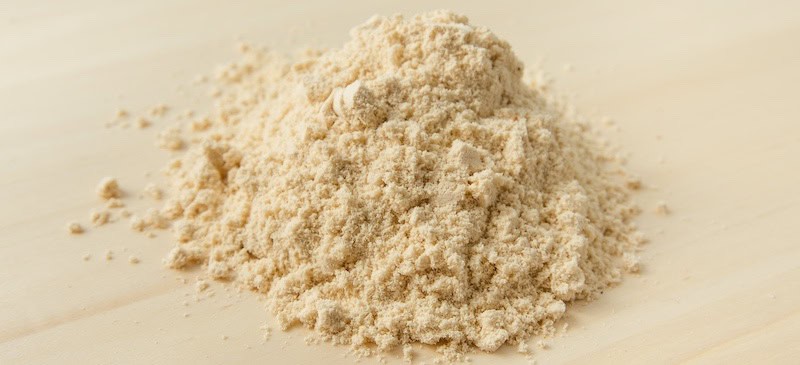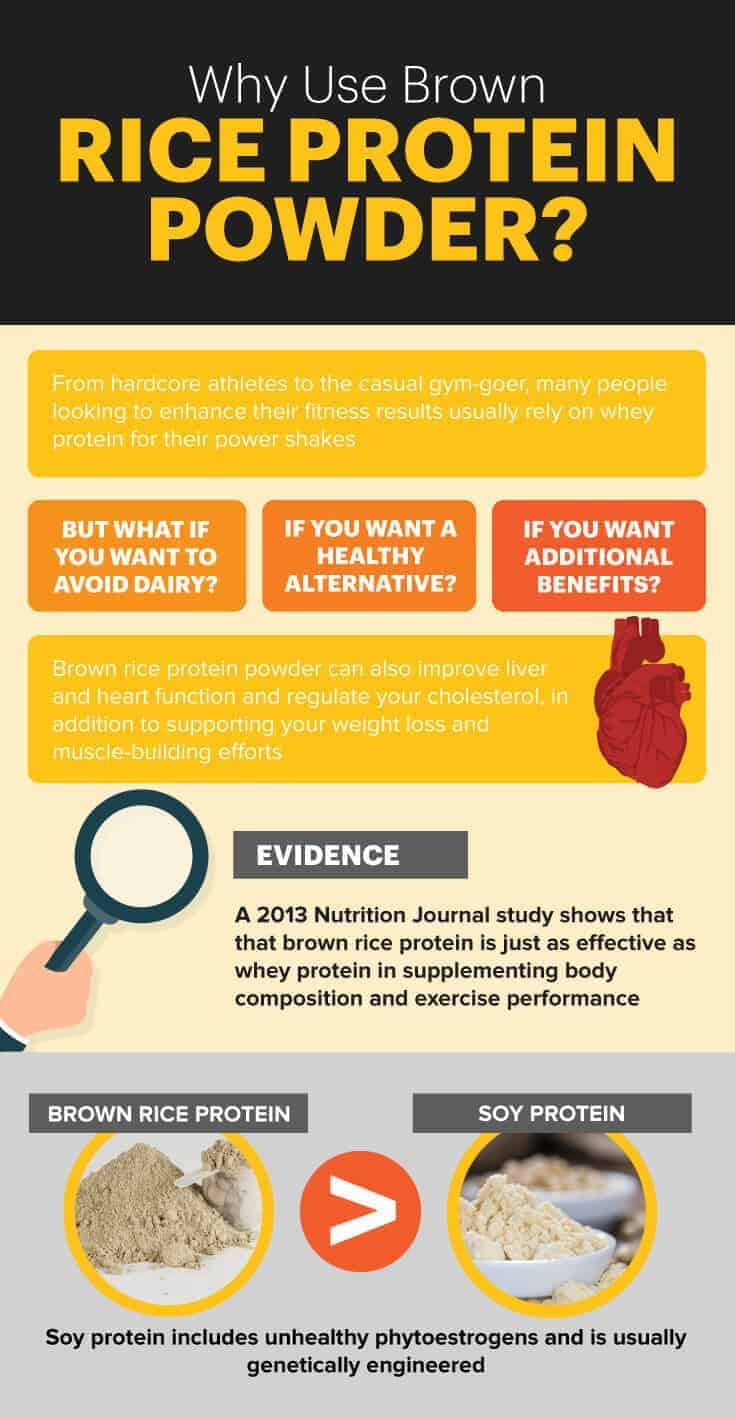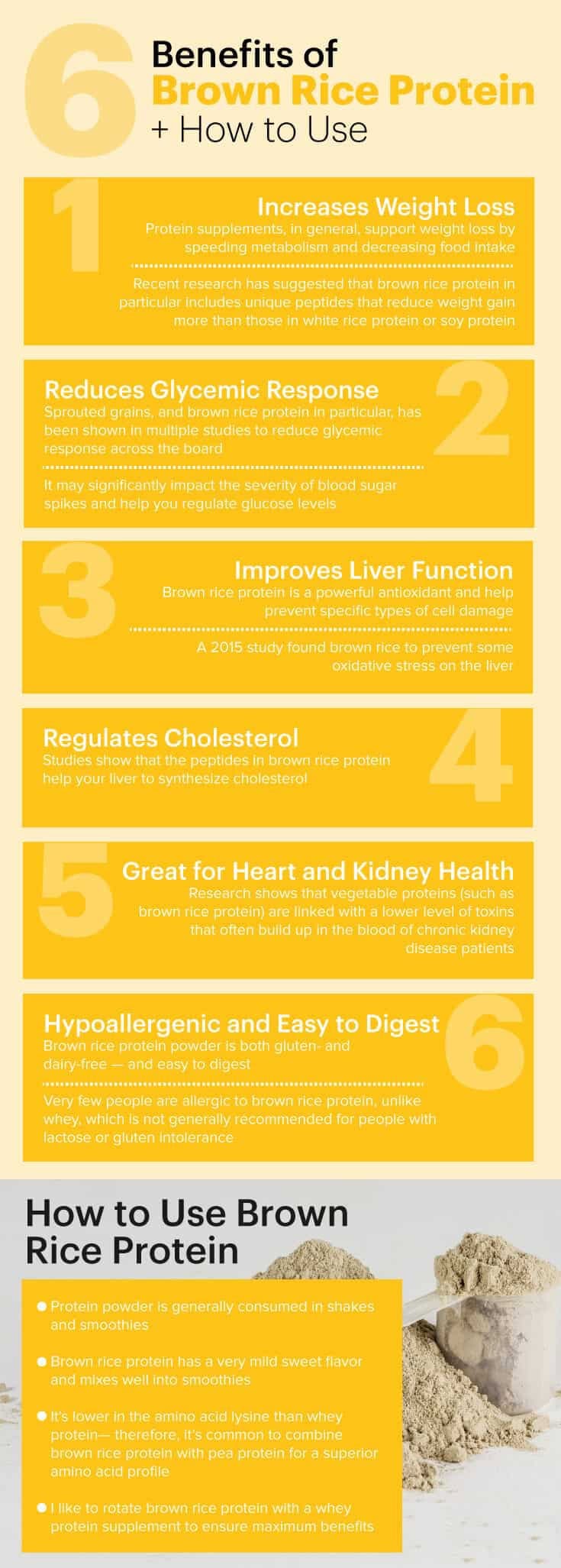This Dr. Axe content is medically reviewed or fact checked to ensure factually accurate information.
With strict editorial sourcing guidelines, we only link to academic research institutions, reputable media sites and, when research is available, medically peer-reviewed studies. Note that the numbers in parentheses (1, 2, etc.) are clickable links to these studies.
The information in our articles is NOT intended to replace a one-on-one relationship with a qualified health care professional and is not intended as medical advice.
This article is based on scientific evidence, written by experts and fact checked by our trained editorial staff. Note that the numbers in parentheses (1, 2, etc.) are clickable links to medically peer-reviewed studies.
Our team includes licensed nutritionists and dietitians, certified health education specialists, as well as certified strength and conditioning specialists, personal trainers and corrective exercise specialists. Our team aims to be not only thorough with its research, but also objective and unbiased.
The information in our articles is NOT intended to replace a one-on-one relationship with a qualified health care professional and is not intended as medical advice.
Brown Rice Protein Powder: Can It Help You Lose Weight & Build Muscle?
May 28, 2025

Protein powder is just for getting fit, right? Not necessarily, at least when it comes to brown rice protein powder.
Did you know that this type of protein dietary supplement can help improve liver and heart function and regulate your cholesterol, in addition to supporting your weight loss and muscle-building efforts? From hardcore athletes to the casual gym-goer, many people looking to enhance their fitness results now have more than whey protein to choose from.
Brown rice protein and brown rice protein powder have emerged as popular plant-based alternatives to traditional protein supplements. Ideal for vegans, vegetarians and those with dietary restrictions, these proteins offer a hypoallergenic and easily digestible source of essential nutrients.
This guide delves into the benefits, nutritional profile, usage and comparisons of brown rice protein to help you make informed dietary choices.
What is brown rice protein?
Brown rice protein is derived from whole-grain brown rice through a process that isolates the protein content, resulting in a concentrated powder form. This plant-based protein is free from common allergens like dairy, soy and gluten, making it suitable for a wide range of dietary needs.
Its mild flavor and smooth texture make it a versatile addition to various recipes and supplements.
Brown rice protein powder has gained more popularity as a top vegan protein powder, especially since the benefits of a plant-rich or completely plant-based diet have been made known.
In fact, brown rice protein has been found to be just as effective as whey protein in supplementing body composition and exercise performance, so it’s not a shock that more health-conscious people are turning to it as a staple of a high-protein, plant-rich diet.
Brown rice protein is packed with incredible antioxidants and nutrients to support weight loss as well, and it’s the perfect protein supplement for the vegan diet.
Brown rice protein powder nutrition facts
Whether you are vegetarian/vegan or just cutting animal products out of your diet for a day, it is still important that the body receives the same protein and amino acids that animal proteins provide. Luckily, plant-based proteins can still do that.
Alone, brown rice does not provide all of the nine essential amino acids that the body needs. That’s why brown rice protein powders often also contain quinoa or chia proteins to compensate for what the brown rice lacks.
When you are buying a brown rice protein powder, check the label for these proteins as both quinoa and chia proteins are complete proteins, meaning they contain all nine essential amino acids.
The nutritional content of brown rice protein powder can vary by brand, but a typical serving (30 grams) provides approximately:
- Calories: 120
- Carbohydrates: 4 grams
- Protein: 25 grams
- Branched-chain amino acids: 4.9 grams
Sometimes, brown rice protein powder also has other nutrients, such as B vitamins, iron, calcium and vitamin C, along with some fiber and fat.
This profile highlights brown rice protein powder as a low-fat, high-protein option suitable for muscle building and recovery.

Health benefits
1. May aid weight loss
Protein supplements, in general, support weight loss by speeding metabolism and decreasing food intake. Even more importantly, research has suggested that brown rice protein includes unique peptides that reduce weight gain more than those in white rice protein or soy protein.
Many people trying to lose weight fast fail to do so because of a lack of protein. Don’t forget, the protein in brown rice protein powder should supplement a diet already high in protein. However, because of its unique properties, brown rice protein may do double duty in helping you reach your weight loss goals.
The thermic effect of protein means that the body burns more calories digesting protein compared to fats or carbohydrates. Brown rice protein’s digestibility can contribute to increased metabolism and satiety, aiding in weight management efforts.
2. Helps with glycemic response
Every time you consume any type of nutrient, whether high or low on the glycemic index, your body elicits a glycemic response. Simply stated, nutrition affects your blood sugar levels, meaning your blood glucose and insulin levels rise after eating and then return to “fasting” levels after a couple of hours.
It’s important to maintain a healthy A1C blood glucose level (average blood glucose over a period of two or three months), especially for individuals with diabetes or prediabetic conditions and women who are pregnant or trying to get pregnant. That’s why you want to be aware of blood sugar spikes, which can cause you to feel fatigued after eating, blur your vision and give you a general ill feeling all over.
Long term, these spikes can lead to an elevated A1C level, which can contribute to heart disease, as well as other serious health complications.
Sprouted grains, and brown rice protein in particular, have been shown in multiple studies to reduce glycemic response in some populations. That means this supplement may significantly impact the severity of blood sugar spikes and help you regulate glucose levels.
3. May improve liver function
Antioxidants help prevent specific types of cell damage, especially damage caused by oxidation (free radical formation caused by oxygen molecules traveling freely in the body), which can cause liver disease. Brown rice protein is a powerful antioxidant.
Research conducted in a lab and on animals has found brown rice can prevent some oxidative stress on the liver and protect against injury from further oxidation.

4. Could help regulate cholesterol
A notable study published in 2017 examined the impact of brown rice on cholesterol levels. This large-scale, 90-day crossover study involved 120 participants and found that consuming pregelatinized brown rice significantly reduced serum total cholesterol and LDL cholesterol levels in individuals with elevated baseline cholesterol.
However, no significant changes were observed in HDL cholesterol levels. These findings suggest that incorporating brown rice protein into the diet may help regulate cholesterol, particularly for those with high initial cholesterol levels.
5. Protects heart and kidney health
It’s no surprise that this protein is also associated with heart health. Over the last couple of decades in the 20th century, a study was conducted with more 29,000 postmenopausal women, following them to discover incidences of cancer, coronary heart disease and death.
Participants who developed coronary heart disease (CHD) over the course of the study had a 30 percent lower mortality rate when they consumed vegetable proteins (like brown rice protein powder) over animal proteins. A higher mortality rate of CHD patients was associated with high consumption rates of dairy products.
That’s not all. A randomized, controlled trial investigated the effects of a fiber-rich brown rice diet on endothelial function in patients with type 2 diabetes mellitus.
The study found that participants consuming brown rice experienced significant improvements in endothelial function, as measured by flow-mediated dilation, without changes in body weight. This suggests that brown rice may enhance vascular health, potentially reducing cardiovascular risk.
Another study assessed the impact of brown rice consumption on inflammatory markers and cardiovascular risk factors among overweight and obese non-menopausal female adults. The results indicated that brown rice intake led to significant reductions in weight, waist and hip circumference, body mass index, diastolic blood pressure, and high-sensitivity C-reactive protein levels. These findings highlight brown rice’s potential in mitigating factors associated with cardiovascular disease.
These benefits extend to kidney health as well. For instance, one study explored the use of low-protein fermented brown rice (LPFG) in patients with chronic kidney disease (CKD).
Over a three-month intervention, participants consuming LPFG showed improvements in gut microbiota composition, reduced urinary protein excretion and decreased levels of β2-microglobulin, a marker of tubular function. These outcomes suggest that LPFG may support kidney function and slow CKD progression.
6. Hypoallergenic and easy to digest
Sprouted brown rice protein powder is both gluten- and dairy-free. Very few people are allergic to brown rice protein, unlike whey, which is not generally recommended for people with lactose or gluten intolerance.
In addition to its hypoallergenic qualities, sprouted brown rice protein is extremely easy to digest and unlikely to bother your stomach.
Being free from common allergens, brown rice protein is less likely to cause digestive discomfort. Its gentle nature makes it suitable for individuals with sensitive digestive systems.
7. Supports muscle growth and recovery
Brown rice protein contains essential amino acids necessary for muscle repair and growth. While it is slightly lower in lysine compared to other proteins, combining it with other plant-based proteins can provide a complete amino acid profile.
In a randomized, controlled trial, 24 healthy male participants engaged in resistance training three times per week while consuming 48 grams of either rice protein isolate or whey protein isolate immediately after exercise. After eight weeks, both groups experienced significant improvements in body composition, muscle strength and exercise performance, with no significant differences between the rice and whey protein groups.
These findings suggest that brown rice protein is as effective as whey protein in supporting muscle growth and recovery in humans.
8. Rich in antioxidants
Brown rice protein retains some of the antioxidants present in whole brown rice, contributing to overall health by combating oxidative stress. In an eight-week trial published in 2025, 50 participants with metabolic syndrome were assigned to either a control group receiving a standard diet or an intervention group incorporating 15 grams of brown rice bran powder daily.
The intervention group exhibited significant improvements in antioxidant enzyme activities, including increased glutathione peroxidase and superoxide dismutase levels, compared to the control group. These findings suggest that brown rice bran powder, rich in bioactive compounds like γ-oryzanol, can enhance antioxidant status in humans.
9. Supports cognition
Brown rice protein provides amino acids like tyrosine and tryptophan, which are precursors to neurotransmitters such as dopamine and serotonin. These play a role in focus, mood regulation and mental clarity, helping support cognitive performance.
In one notable study, 52 healthy elderly participants were randomized to consume either ultra-high hydrostatic pressurized brown rice (UHHPBR) or polished white rice daily for 24 months. The UHHPBR group demonstrated significant improvements in cognitive assessments, including enhanced executive function and reduced apathy, compared to the white rice group.
These findings suggest that long-term consumption of UHHPBR may support cognitive health in the elderly.
10. May boost energy levels
The B vitamins and amino acids found in brown rice protein help convert food into usable energy. This can lead to improved stamina and sustained energy levels throughout the day, especially beneficial for active individuals or those managing fatigue.
How to use
Protein powder is generally consumed in protein shakes and smoothies. Brown rice protein has a very mild, sweet flavor and mixes well into smoothies.
One interesting thing to note about brown rice protein is that, while it is technically a complete protein source (meaning it contains all essential amino acids your body needs), it’s lower in the amino acid lysine than whey protein. Therefore, it’s common to combine brown rice protein with pea protein for a superior amino acid profile. It’s also a good idea to rotate brown rice protein with a whey protein supplement to ensure maximum benefits.
Brown rice protein powder can be incorporated into your diet in various ways, such as:
- Smoothies and shakes: Blend with fruits, vegetables and liquids for a nutritious drink.
- Baking: Add to muffins, pancakes or bread for a protein boost.
- Cooking: Mix into soups, stews or sauces.
- Protein bars: Combine with nuts, seeds and sweeteners to make homemade bars.
Here are some recipes to try:
- For a chocolate flavor, try this recipe for a Mocha Fudge Smoothie, substituting brown rice protein powder for the bone broth mentioned in the recipe.
- If you’re looking for something with more of a fruity taste, you can also try this Blueberry Smoothie, substituting sprouted brown rice protein powder for collagen protein powder.
- Smoothies aren’t your only option. You can mix protein powder into some guiltless desserts to curb cravings for sweets! Some of my favorites are Dark Chocolate Protein Truffles and Lemon Protein Bars.
Start with the recommended serving size on the product label, typically around 30 grams, and adjust based on your dietary needs and recipe directions.
Risks and side effects
While sprouted brown rice protein has no proven side effects, excess protein (more than one gram per pound you weigh) has been suspected to cause diarrhea when consumed over long periods of time. There are also some unfounded claims of liver damage, although no scientific evidence has backed these claims.
However, it is important to follow serving directions for all supplements and consult your physician if you experience any adverse physical effects after starting a new fitness or dietary regimen.
Brown rice protein is generally safe for most individuals. However, excessive protein intake can lead to digestive issues, such as bloating, gas and cramping.
Additionally, brown rice can contain higher levels of arsenic compared to white rice, as arsenic accumulates in the outer layers of the grain. Choosing products from reputable brands that test for heavy metals can mitigate this risk.
Brown rice protein vs. pea protein
Both brown rice and pea proteins are popular plant-based protein sources, each with unique characteristics:
- Amino acid profile: Pea protein is higher in lysine, while brown rice protein is higher in methionine. Combining the two can provide a complete amino acid profile.
- Digestibility: Both proteins are easily digestible, but individual tolerance may vary.
- Allergen considerations: Both are hypoallergenic, making them suitable for individuals with common food allergies.
Choosing between the two depends on personal dietary needs and preferences.
Frequently asked questions
Is brown rice protein a complete protein?
Brown rice protein is not a complete protein on its own, as it is low in lysine. However, when combined with other proteins like pea protein, it can provide all essential amino acids.
Can I use brown rice protein if I have food allergies?
Yes, brown rice protein is free from common allergens, such as dairy, soy and gluten, making it suitable for individuals with these allergies.
How does brown rice protein taste?
It has a mild, slightly nutty flavor that blends well with various ingredients in recipes.
Is brown rice protein suitable for weight loss?
Yes, its high protein content can promote satiety and increase metabolism, aiding in weight management.
Conclusion
- Brown rice protein powder is a versatile, plant-based protein source that offers numerous health benefits, including muscle support, weight management and suitability for various dietary needs.
- By understanding its nutritional profile and how to incorporate it into your diet, you can make informed choices to support your health and wellness goals.








